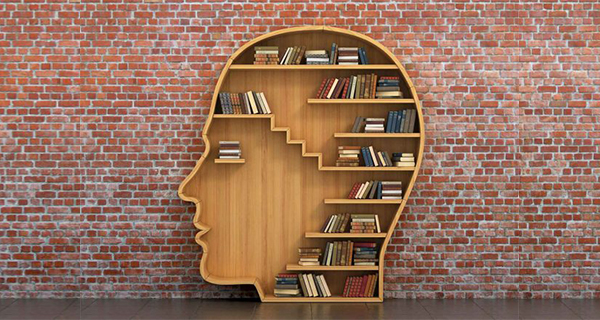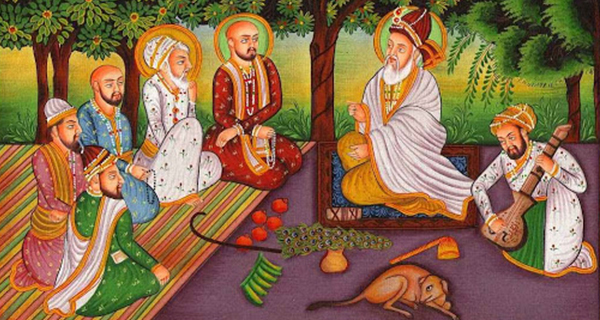 POTHI PADI PADI JAG MUA (पोथी पढ़ि पढ़ि जग मुआ)…
POTHI PADI PADI JAG MUA (पोथी पढ़ि पढ़ि जग मुआ)…“So many books? How would my child learn?” laments the mother. But on the other hand, she would very much require her child to be, not a jack of a few trades, but the master of many. One could see this paradox in education today.

“Questions will come from which book?” asks the young learner from the school who intends to complete his schooling with a certificate that carries marks, which does not truly reflect his knowledge, skill and competencies. He doesn’t hesitate to add a few more books to his library, not for knowledge, but to explore better chances of the impending challenge of the examinations.
The question before the community is “Do all these pieces of information embedded in the big volumes of texts mean anything to the learner for his life?” If it does, why should he feel lost, depressed and self-defeating about his future in a vibrant society? Why should his relationship with people always be on doubt, suspicion, fear and mistrust, though the number of people he is continually interacting is increasing in numbers? Do these increasing familiarity and number of articulated relationships mean anything to the fulfilment of happiness in one’s life? For people, searching answers for these questions, the works of the great saint-Kabirdas may give some answers.

Kabir, the mystic saint-poet of the fifteenth century, a gem of the Bhakti movement in India, a strong advocate of Gyana Marga (the path of knowledge) as the way to realize the divinity impacted the social consciousness of people through his poems and sayings. His verses written in sadhukkadi language, was the common spoken language of the people and hence his words reached the people easily and impacted their thought processes. Kabir, focused on experiential knowledge which is pragmatic, utilitarian and that which could transform people to become evolved human beings with unconditional love for fellow beings. He believed in the service of the needy and serving the poor as true prayer to God, who was infinite and omnipresent. He called for self-realization and to visualize the God present in every soul.
In one of his “doha” he summarises the objective of education, and his observation on the human element of education is evident. It reads as follows:
पोथी पढ़ि पढ़ि जग मुआ, पंडित भया न कोय ।
ढाई आखर प्रेम का, पढ़े सो पंडित होय ।।
Pothi Padh Padh Jag Mua Pandit Bhaya Na Koi !
Dhai Aakhar Prem Ke, Jo Padhe so Pandit Hoye !!
Meaning “Reading books everyone died, none became any wise, one who reads the word of Love, only becomes wise.”
The Irony of modern times
In the modern context, the values enshrined in the concepts this poem has a great significance. The poet makes it clear that the volume of information or the quantum of reading is of no value. People tend to go on reading big volumes of books without either understanding or not importing the essence of the messages contained in those books. Reading books, hence, is of no gurantee to the gateways of wisdom. ‘There are three classes of men: lovers of wisdom, lovers of honour and lovers of gain.” Says Plato. In modern times, we tend to value the later two than the former one.
In the current educational scenario, there is a tendency to add volumes of texts for learning without adequate opportunities to draw the essence of wisdom enshrined in such books. Learners tend to deal with the information contained in a superficial manner that occupies the memory as a volatile input and just evaporates with the passage of time. There is no link between the inputs of learning to the inner conscience of the individual learner. Learning is considered as the requisite for an existential purpose to meet the basic demands of a material life. People tend to engage with such learning almost throughout their life span. This neither results in the transformation of the individual nor in the evolution of individual to a higher plane of existence. This doesn’t help to harmonise with the social consciousness; the learner, thus remains, a non-contributive individual in a social economy.
The need for introspection
The learner is neither left with time to introspect or reflect on the content of the learning. Even many of the inputs of learning do not help in adequate engagement with the inner being of the learner. When no such engagement takes place, the information metamorphosing into knowledge and subsequently emerging as the wisdom, doesn’t happen. The famous English essayist Sir Francis Bacon says ““It is a sad fate for a man to die too well known to everybody else, and still unknown to himself.” Any learning, therefore, should result in a person to know himself. The process of understanding of the self alone would lead to gather the ability to understand others. So, every individual needs to immerse oneself in the unfathomed oceans of knowledge and experience the rhythms of communication of the self with the external universe and feel the sounds of music that blossoms into knowledge. Without this experience one cannot gain wisdom. “Wisdom is the daughter of experience’ says Leonardo da Vinici, the great artist. When one gains this kind of wisdom, he remains silent in the inner world. It is said “Knowledge speaks; but wisdom listens.”
The mystic poet is convinced that manifold volumes of reading does not make one a scholar (Pandit). How can we call just a well-informed person or a well-knowledgeable person as a scholar? Does scholarship mean funding or banking of information? “A scholar is just a library’s way of making another library” says Daniel Dennett, a leading American philosopher and cognitive scientist. Unless knowledge results in action and that too in a positive action, it remains unproductive.
The human dimension of education
Education, has a larger objective. It is an engagement with the process of human evolution. Its intellectual domain is only a smaller part of its universe. In a co-habited world, it has to act as a powerful instrument of social consciousness, empathy and social wealth generation. The route to these objectives is the path of unconditional love. Hence, if education does not nurture the love for fellow beings, compassion and empathy, it would be failing in its fundamental objective. No wonder, Kabir talks of “daai aakar prem ka”. To love and be loved is the foundation of any social architecture. Possibly, no text book will teach these fundamentals. The poet, therefore argues, that it is not the volume of books that go to manifest a purposeful socially conscious human being, but it is through love for all and love unconditional that matters. Love only empowers the spirit of service.
Unconditional love, is the acceptance of others, as they are. Unconditional love is the ability to see and empathize with others at all times and in all occasions. “Intense love does not measure, it just gives” says Mother Teresa.
In the modern social and educational context, where materialism and consumerism are dominant over the humane considerations, the words of Kabir carry a lot of importance. The time is ripe to bring some paradigm shifts in the curriculum and pedagogy to humanize education.
Image courtesy:https://www.shethepeople.tv/wp-content/uploads/2018/07/Books-Every-Entrepreneur-Should-Read-in-2018-e1530611970733.jpg
Image courtesy:https://www.siracusatimes.it/wp-content/uploads/2018/12/700_FO101625807_7429c4574fcc27c86077ba7af5a27bb9.jpg